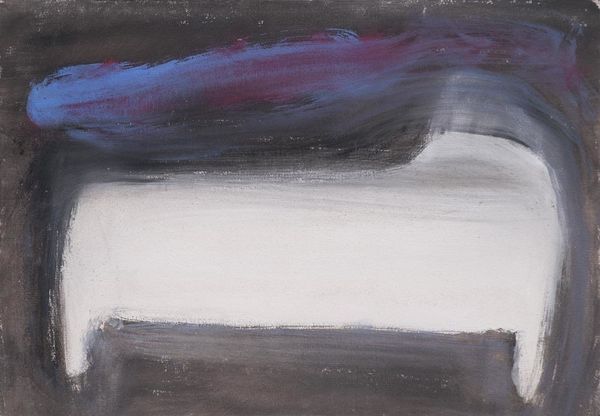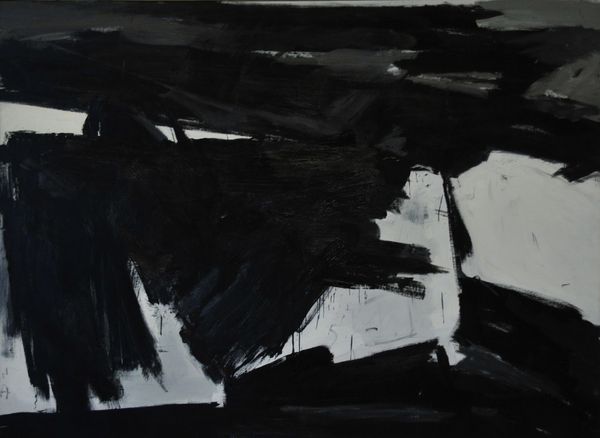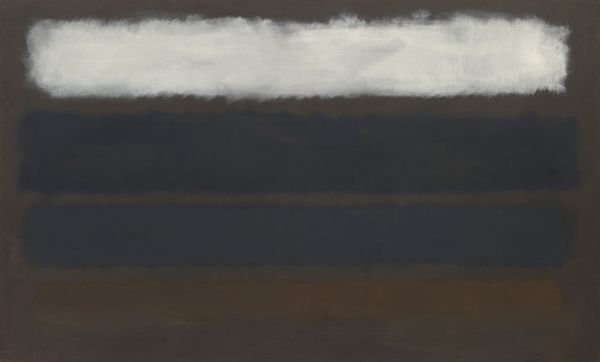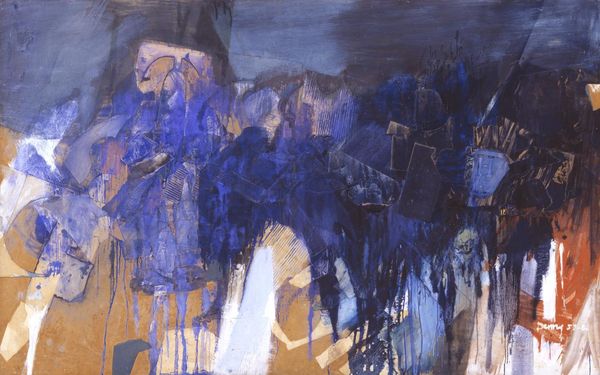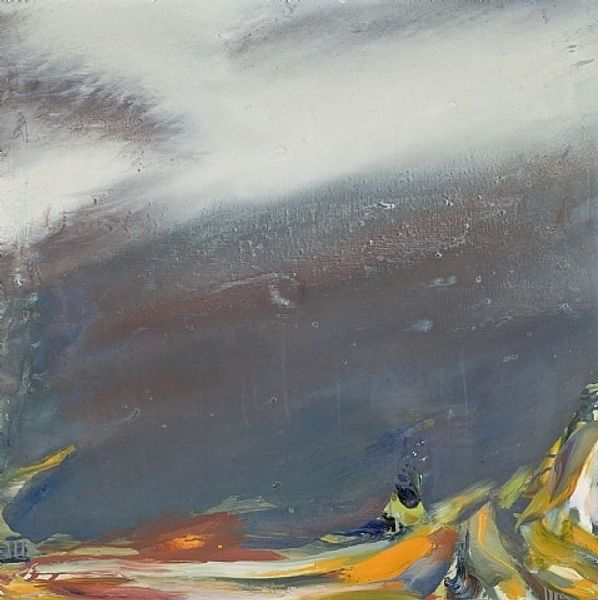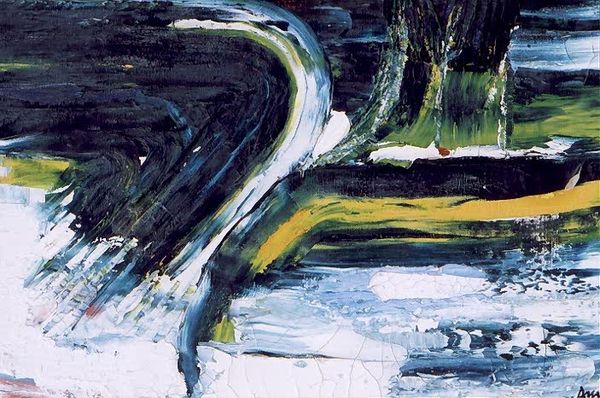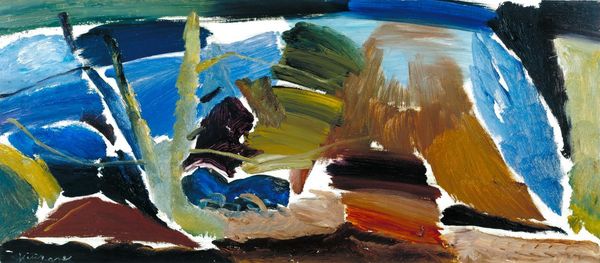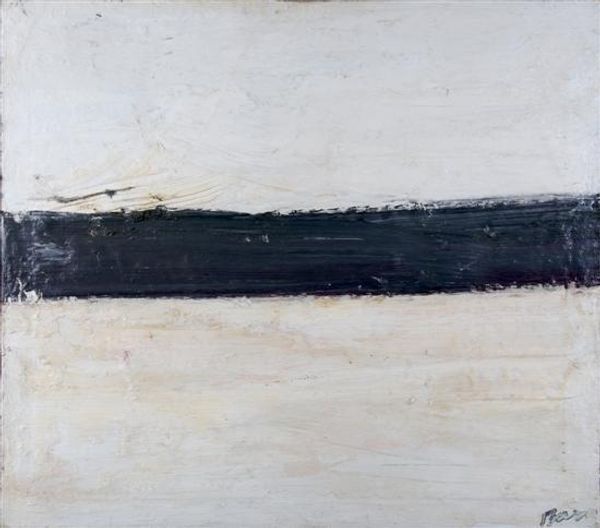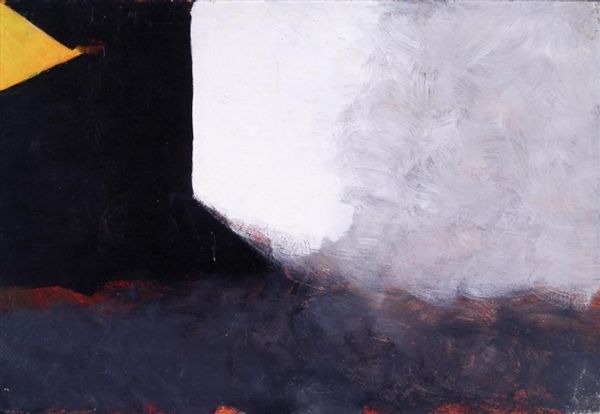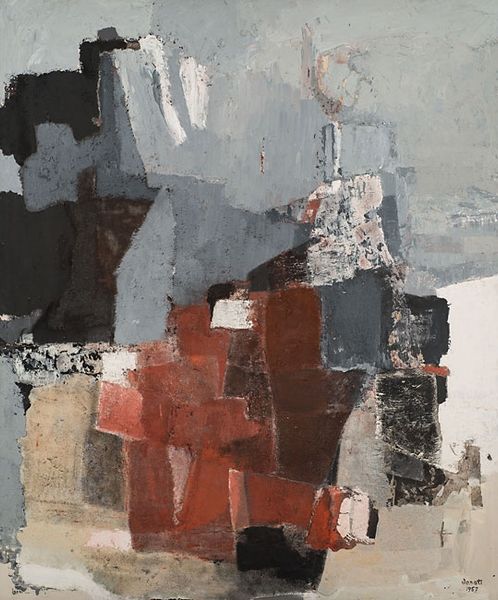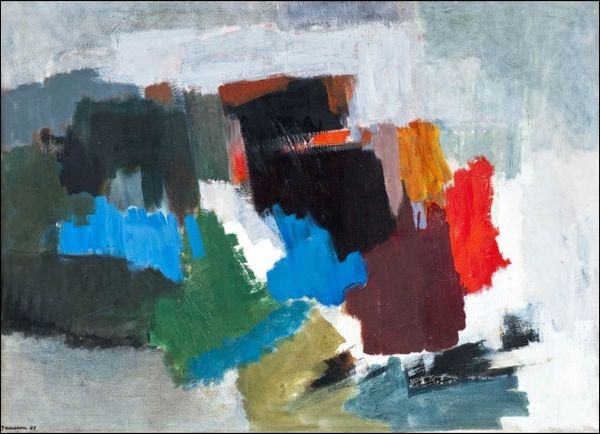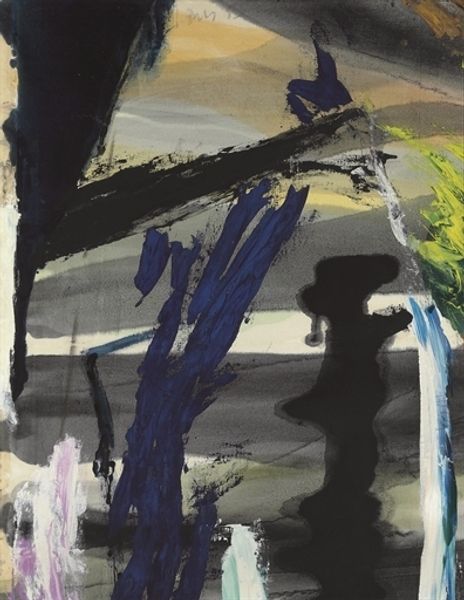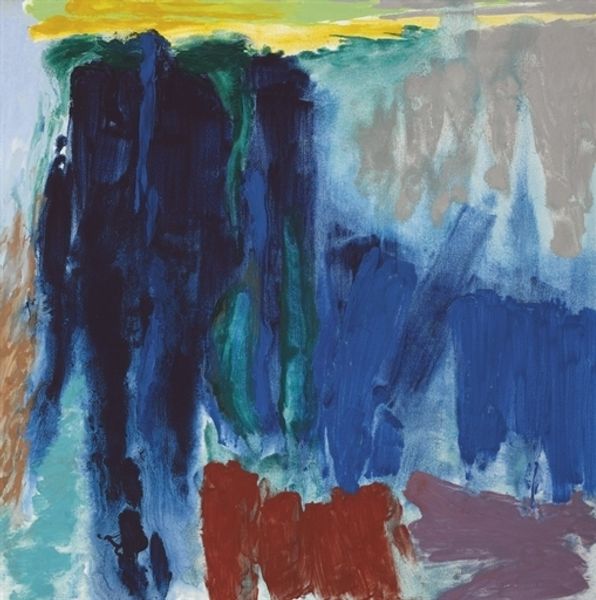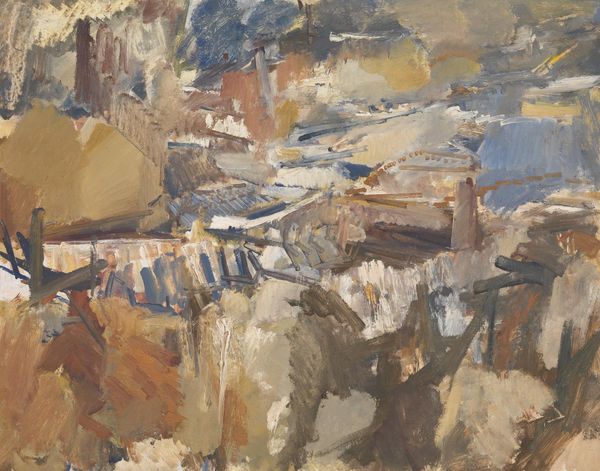
Dimensions: support: 514 x 1168 mm frame: 850 x 1455 x 85 mm
Copyright: © The estate of Ivon Hitchens | CC-BY-NC-ND 4.0 DEED, Photo: Tate
Curator: Here we have Ivon Hitchens’s "Woodland, Vertical and Horizontal", currently residing in the Tate Collections. Editor: It’s… brooding. The color palette feels restrictive, almost oppressive. Curator: Note how Hitchens teases representation through these blocks of color. Are those trees? A horizon? The very ambiguity is the point. Editor: But isn’t that ambiguity rooted in a specific historical moment? Post-war anxieties, a fragmented sense of self… surely this woodland speaks to more than just formal arrangements? Curator: Perhaps, but I am more intrigued by the surface itself. The layering of paint, the visible brushstrokes – that’s where Hitchens’s true intention lies. Editor: I see a landscape of trauma, subtly rendered. The vertical and horizontal aren't just compositional elements, they represent forces at odds. Curator: An interesting interpretation. It seems this deceptively simple arrangement continues to generate complex readings. Editor: Exactly. And that's why it remains so powerful.
Comments
tate 9 months ago
⋮
http://www.tate.org.uk/art/artworks/hitchens-woodland-vertical-and-horizontal-t00261
Join the conversation
Join millions of artists and users on Artera today and experience the ultimate creative platform.
tate 9 months ago
⋮
Hitchens often painted several versions of the same view, creating series of works akin to musical variations on a theme. He often spoke of his work as ‘visual music’ (likening shape, colour and tone to ‘instruments in a painter’s orchestra’), which he composed using principles of rhythm, balance, opposition and symmetry. ‘My pictures are painted to be “listened” to,’ he wrote.According to Heron, Hitchens’s use of the horizontal, ‘panoramic’ canvas provided a sense of musical movement and flow and captured the active, ‘swivelling eye’ of the artist moving through the landscape. Gallery label, May 2007
